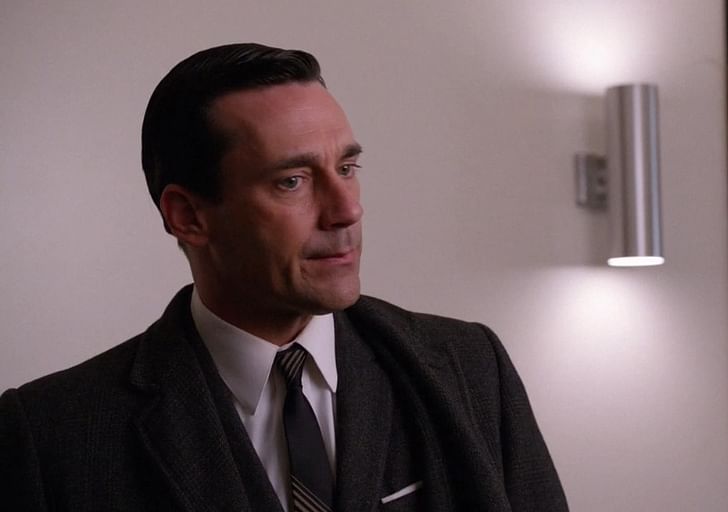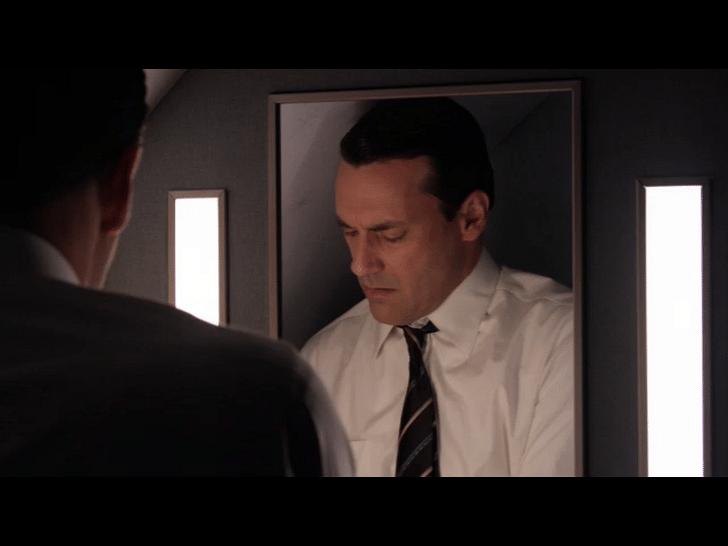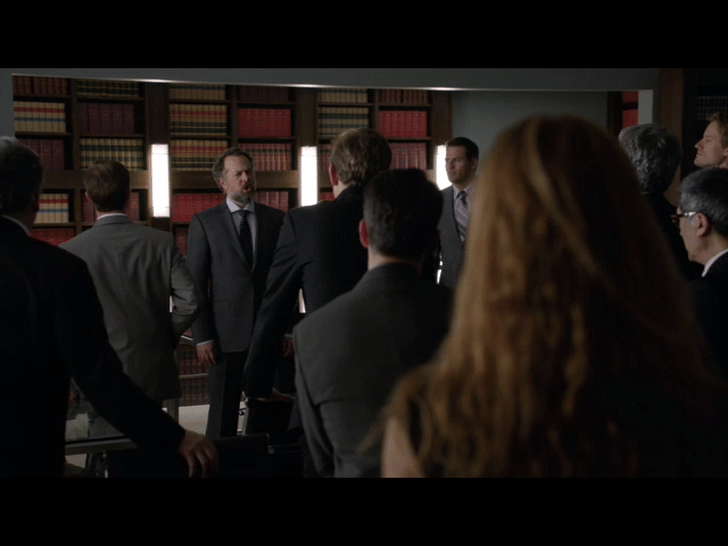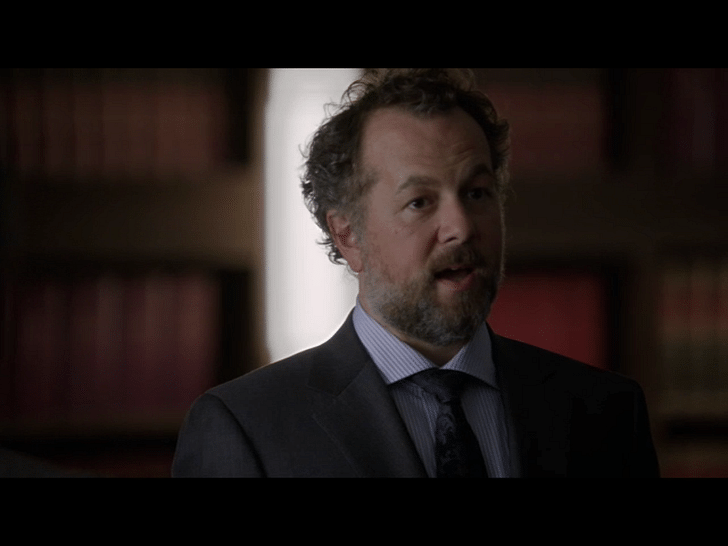

In an era when corporations are people, people are increasingly the figureheads of corporate emotion.
These characters are the Richard IIIs of the spreadsheet milieu, mounting ever greater campaigns in search of...well, they aren't entirely clear why they're forsaking their kingdoms. They already have money, influence, and sexual prowess. What they can't shake is the curse of relentless momentum, even if that means they propel themselves into a downward spiral. So what is the material conduit for someone about to hurtle themselves through the corporate end-game? On Mad Men and Suits, it is the presence of strips of vertical lighting.
Don Draper's sexy self-destruction has fueled Mad Men for the better part of a decade, but his final moments may be his most bittersweet. For a man who made a career out of knowing what everyone but he really wanted, Draper bought into the self-made slogan of his existence while neglecting the substance. Having unearthed his genuine feelings during an impromptu confession about his whorehouse upbringing in a Hershey pitch meeting, Draper essentially lost his job but regained his soul. Now, he is confronted with his own raw self in an airplane mirror, flanked by vertical lights.

Like illuminated goalposts, the lights urge him forward while calling attention to the mirror, signaling that he is reflecting on his past. If he is not an advertising executive, who is he? If he is a man who can't stay married, who does he love, and how does he love them? In this moment, he is poised for a rebirth, or at least a fundamental reordering. Draper is no longer motivated to pitch tag lines in the morning and seduce a newbie by noon; he has begun the unenviable task of living as himself, not as a corporate construct. Draper is no longer motivated to pitch tag lines in the morning and seduce a newbie by noonUnfortunately, he has virtually no idea how to do this. He is shaving in an airplane bathroom before meeting his estranged wife in the sunny frontier-land of Los Angeles. The vertical lights quietly signal the beginning of this uncertain journey as the sequence's jump cuts and camera pushes establish his feeling of almost mindless drive.
Undergoing a similar journey is Machiavellian lawyer and former managing partner Daniel Hardman of the central law firm in Suits. This show, which owes its appeal to watching well-dressed men reliably solve problems, introduces Hardman's villainy with all the subtlety of an air horn. Before we even lay eyes on the man, we have heard about how Hardman embezzled firm funds so he could cheat on his dying wife with a young associate. This blatant set-up actually makes him intriguing to watch; how and when will he turn against the current managing partner and her number two, the poor man's Johnny Depp? Hardman chooses his moment in the partner's library, framed by those goalpost-like vertical lights.

Despite having the option to receive a healthy paycheck simply for staying out of the way, Hardman has elected to try and undermine the current managing partner by manipulating the senior partners with half-truths and favoritism. Much like Draper, he is something of a rudderless man with energy to burn, having lost his wife to cancer, his authority to embezzlement, and his peers’ respect to his lies. The only thing he has left–his personal characters retreat from the relentless glare of the corporation into the darker, less strident territory of their souls.momentum–is driving him to keep repeating his ingrained corporate behavior patterns. After making his initial announcement to the senior partners, Hardman steps away and has a conversation with his adversaries. Even during this conversation, he stands so that he is continually between the lights.
The relative lack of style of these lights–their bland whiteness and unwavering luminosity–is in some ways symbolic of the undeterred focus of a corporation. Both Mad Men and Suits are stylized chronicles of how people are warped and ultimately changed by being the principals of major businesses. From the brown-nosing and womanizing on Mad Men to the weekly chilly logic laid out against unions and Fortune 500 conmen on Suits, the heart of these shows beats in the after-hours corner office, one scotch on the rocks at a time. Here, the characters retreat from the relentless glare of the corporation into the darker, less strident territory of their souls.

Both Hardman and Draper have given their lives over to this relentless agenda. Being a real person involves dealing with unprofitable emotions, while the single-mindedness of the corporation provides the comfort of a clear direction without any actual clarity. By adopting this creed, Draper and Hardman's successes were doomed to turn to failures because they never allowed for the competing motives of real life. When they finally stepped outside of the corporate model and gave into their humanity, they were so out of practice that they were completely consumed. Now, as men who have had to turn in their nameplates and kiss the expense account goodbye, they have the chance to start afresh. Unfortunately, much like moths, both men are still drawn to the flame; but this corporate flame is nothing more than an opaque, illuminated strip.
Julia Ingalls is primarily an essayist. Her work has appeared or is forthcoming in Slate, Salon, Dwell, Guernica, The LA Weekly, The Nervous Breakdown, Forth, Trop, and 89.9 KCRW. She's into it.
1 Comment
Wall sconces in low ceilings of a typical corporate setting....I get the aesthetic now, you just rewrote my impression of many midtown (nyc) elevator lobbies and building corridors. Adding wall sconces to the brass, mirror, and lines of coke aesthetic!
Block this user
Are you sure you want to block this user and hide all related comments throughout the site?
Archinect
This is your first comment on Archinect. Your comment will be visible once approved.